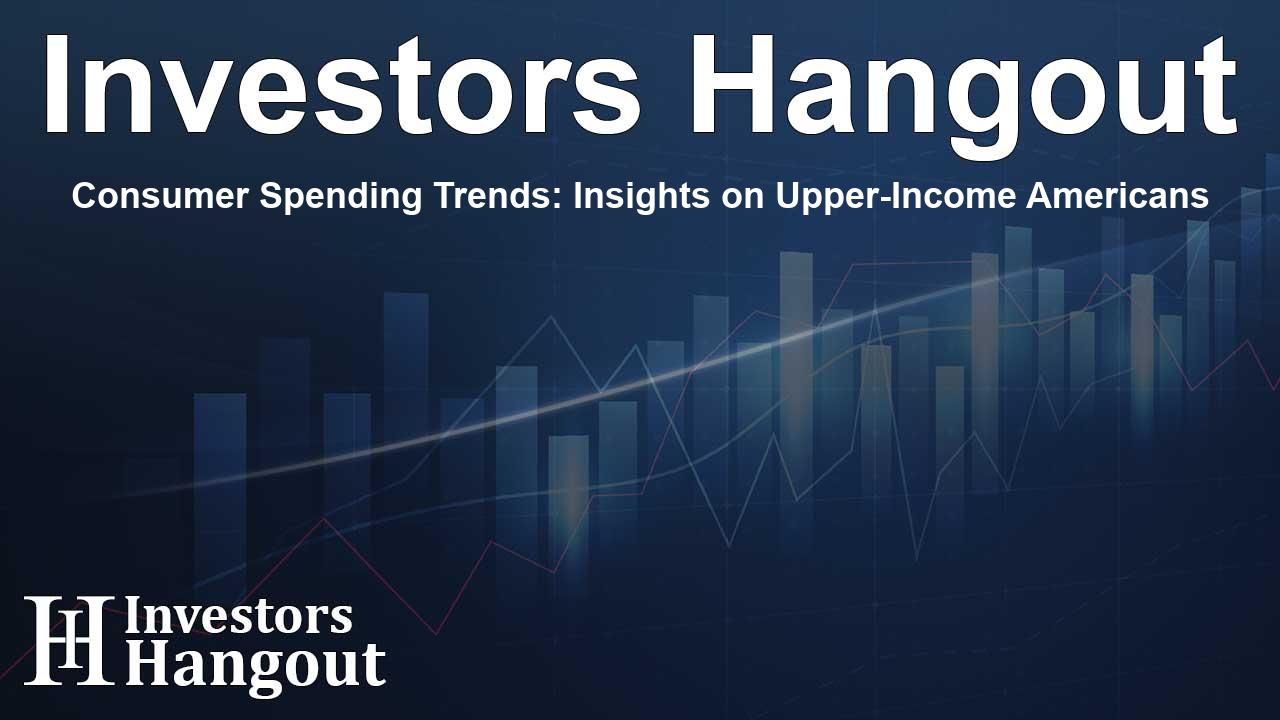Consumer Spending Trends: Insights on Upper-Income Americans

Consumer Spending Trends Among Upper-Income Groups
The financial landscape is evolving, and recent data sheds light on how upper-income Americans are planning to increase their spending. This optimism arises from soaring equity markets, pushing consumer sentiment to heights not experienced in recent times. While high earners display a bright perspective, the same cannot be said for their medium and lower-income counterparts, who are grappling with uncertainties in housing and job security.
Positive Forecasts in Spending Intentions
Support from upper-income earners, those earning over $100,000 annually, has seen a compelling uptick in their spending intentions. In the latest analysis, their outlook soared by six points in a span of four weeks, following a robust rise previously noted. This rhythm of growth indicates their spending levels are exceeding averages established over the past year, as market strength fuels an enthusiastic response toward future expenditures.
Diverging Outcomes Among Income Groups
However, the broader outlook for American consumers is less favorable, especially for those in the middle-income bracket of $50,000 to $100,000. Their sentiment has stagnated, and projections regarding spending continue to detract. Observations indicate a downturn in their expectations around housing, hinting at a less stable economic backdrop.
Housing Market Concerns
Middle-income families are witnessing a worry about their main asset – their homes. As housing markets face fluctuations, the confidence of these families in spending is negatively impacted. The reflections of this cautious sentiment correlate with slowing sales and a broader sense of economic caution, which may influence their financial decisions in the months ahead.
Job Market Fears for Lower-Income Earners
For individuals in the lower-income range, those making below $50,000 a year, the situation appears stagnant. They show little change in their outlook, remaining in a negative mindset for the second consecutive month. Markers indicate that job market developments are influencing their consumer behavior significantly, creating a cycle of uncertainty affecting overall spending.
Insights from Economic Experts
According to economic analysts, the ardor being expressed by upper-income Americans represents only a fraction of the complete picture. While they exhibit an admirable spending enthusiasm, this trend is heavily reliant on the current performance of equity markets. If the optimism among these higher earners falters, it could lead to broader implications across the economic spectrum.
Strategic Considerations Ahead
In looking ahead, it is clear that middle- and lower-income consumers will need to see improvements in their financial situations to contribute more robustly to the overall consumer spending landscape. The situation calls for close monitoring as the implications from equity market performances play out amidst diverse consumer attitudes.
Frequently Asked Questions
What is the overall sentiment of upper-income consumers regarding spending?
Upper-income consumers are exhibiting a positive outlook, anticipating an increase in spending prompted by recent equity market highs.
How are middle-income households reacting to the current economic situation?
The outlook for middle-income households is stagnant, as they struggle with uncertainty, particularly concerning the housing market.
What factors are influencing the spending habits of lower-income individuals?
Lower-income consumers are affected by fears surrounding job security. This sentiment has led to a negative forecast regarding their spending habits.
How does the optimism of upper-income Americans affect overall consumer spending?
The enthusiasm of upper-income earners plays a significant role as they contribute significantly to discretionary spending, potentially buoying overall economic activity.
What should we look out for in the coming months regarding consumer behavior?
Monitoring changes in the housing and job markets will be crucial, as shifts in these areas could impact consumer confidence across different income groups.
About The Author
Contact Evelyn Baker privately here. Or send an email with ATTN: Evelyn Baker as the subject to contact@investorshangout.com.
About Investors Hangout
Investors Hangout is a leading online stock forum for financial discussion and learning, offering a wide range of free tools and resources. It draws in traders of all levels, who exchange market knowledge, investigate trading tactics, and keep an eye on industry developments in real time. Featuring financial articles, stock message boards, quotes, charts, company profiles, and live news updates. Through cooperative learning and a wealth of informational resources, it helps users from novices creating their first portfolios to experts honing their techniques. Join Investors Hangout today: https://investorshangout.com/
The content of this article is based on factual, publicly available information and does not represent legal, financial, or investment advice. Investors Hangout does not offer financial advice, and the author is not a licensed financial advisor. Consult a qualified advisor before making any financial or investment decisions based on this article. This article should not be considered advice to purchase, sell, or hold any securities or other investments. If any of the material provided here is inaccurate, please contact us for corrections.
